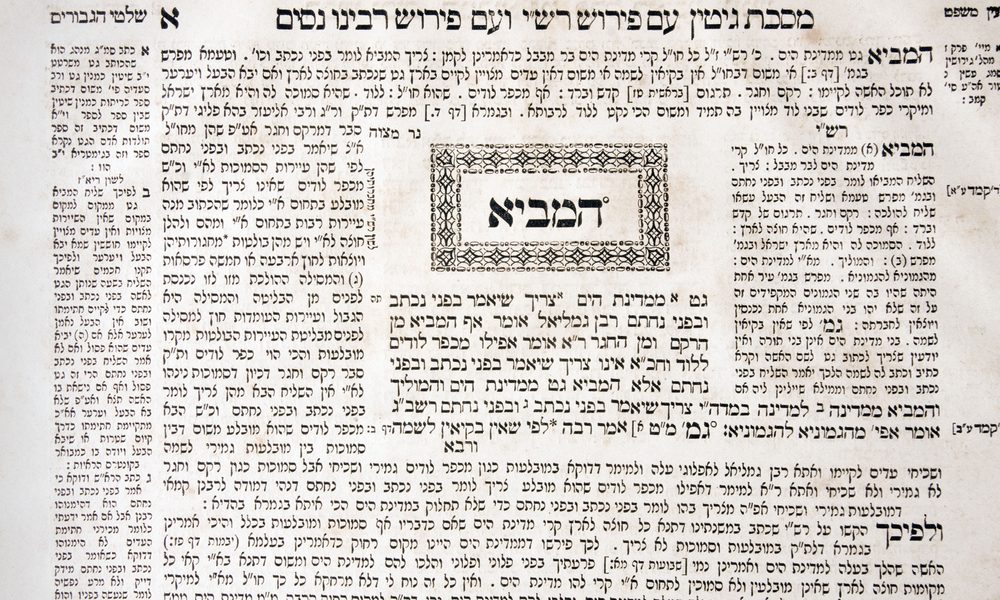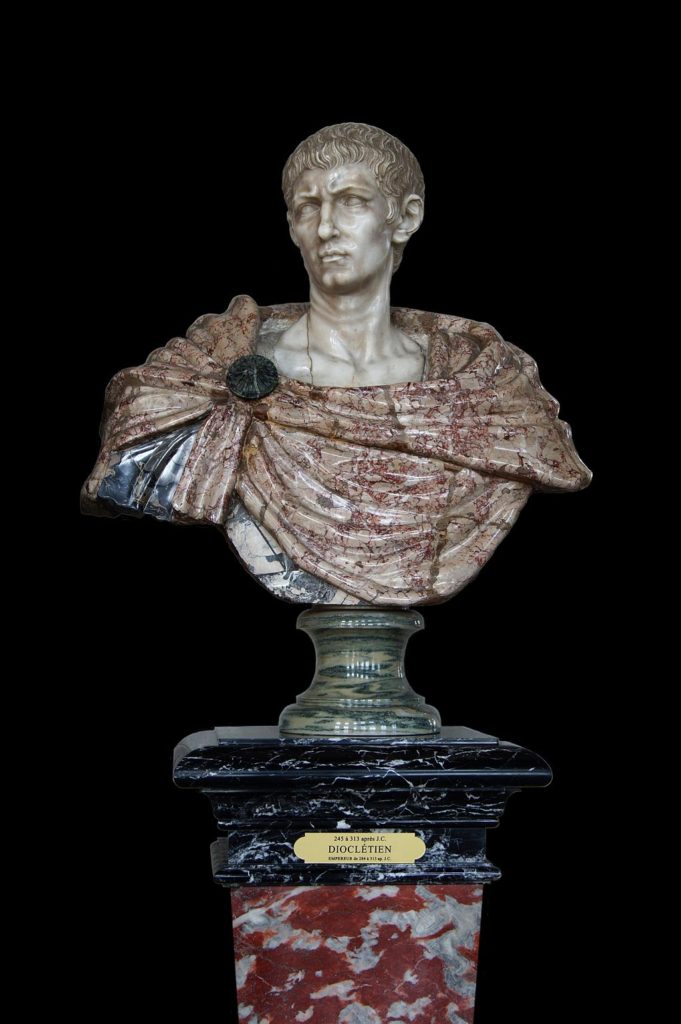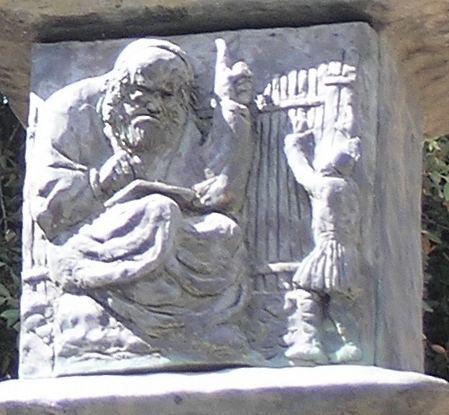
270 AD to 290 AD: Psalm 61: Poumbedita.
This site was first built in French (see www.147thgeneration.net). The English translation was mainly done using « google translation ». We have tried to correct the result of this translation to avoid interpretation errors. However, it is likely that there are unsatisfactory translations, do not hesitate to communicate them to us for correction.
(for that click on this paragraph)
Summary
This generation is from the years 270 AD to 290 AD.
According to our count, this generation is the 61st generation associated with Psalm 61. It is in this Psalm 61 that we therefore find an illustration of the facts of this generation.
The Jews of Galilee, for multiple reasons, are undergoing increasing impoverishment, confirming that the heyday of Palestinian Judaism is over.
The Babylonian academy of Nehardea, destroyed in the previous generation, was restored to this generation in Poumbédita where it was maintained until the 9th century.
This reconstruction will allow the development of the Babylonian Talmud which will become the main cement of the Jewish people after the slow decline of Palestinian Judaism during this generation which will become worse with the triumph of Christianity in the West.
Talk
Palestinian Judaism
At the level of the Roman Empire, this generation is straddling the reigns of Aurelian (270-275) and Diocletian (284-305). Between these two kingdoms succeeded Tacitus, Probus, Carus and his sons Numerianus and Carinus.

The reign of Diocletian more than twenty years breaks with those of his predecessors, less stable. Diocletian tries to reform the Roman economic system fairly effectively but perhaps a little too late for the Galilee victim of a growing impoverishment :
- The [1] tax burden, inflation, famine, epidemics, money lending and usury (due to very high inflation), increased theft and looting all this constituted a dangerous aggravation of the contrasts between poor and rich, and thus of social tensions. The easing of some of the Halakha’s prescriptions concerning agriculture (especially the Sabbatical year obligation), already begun under Yehuda Ha Nassi, could not change much in the long run. The decline of patriarchy and ultimately of all Palestinian Jewry is undoubtedly closely correlated with these rapidly worsening economic difficulties. When the Roman Empire began to stabilize politically and economically at the advent of Diocletian (284) – the emperor successfully fought against inflation and reformed the monetary system; at the same time, he introduced an administrative reform – the great era of Palestinian Judaism is over.
The catastrophic situation of Palestinian Judaism that succeeds the destruction of the Babylonian Academy of Nehardea has something to worry David, because it could have serious consequences for Judaism if the relay is not assured.
This worry is the object of the beginning of the psalm of this generation:

- For the conductor, on neginath, of David.
- Hearken, O God, to my request, listen to my prayer.
- From the end of the earth (…)
- The Amoraim of this generation are relegated to the Sea of Galilee at the end of the country (corresponding to: end of the earth/land)
- (…) I call out to You when my heart becomes faint; on the rock that is higher than I, You lead me.
- For You were a shelter for me, a tower of strength in the face of the enemy.
- I shall dwell in Your tent to eternity; I will take shelter in the covert of Your wings forever.…
- Babylon will indeed be the new « rock » of Judaism of exile, one that will allow Jews in exile to stay close to God, out of time, immune – religiously – attacks of nations .
Babylonian Talmud
David’s prayer is not in vain, for the relay is provided by Babylonian Judaism who is building a new academy that will once again make Judaism shine, at least as prestigious as that of Nehardea:
- Under [2] Rav Chila and Abba bar Abba, circa AD 200, the academy of Nehardea was the spiritual center of Babylonian Judaism, with contact maintained between Yehudaah Ha Nassi and the Jewish community of Eretz Israel. […] The academy of Nehardea was destroyed in 259 by the palmyrenian allies of Rome. Under the direction of Yehuda Bar Ezekiel (220, ca. 279), pupil and successor of Samuel, she was restored to Poumbedita where she remained until the ninth century.
This reconstruction will allow the development of the Babylonian Talmud which will become the main cement of the Jewish people after the slow decline of Palestinian Judaism during this generation which will become worse with the triumph of Christianity in the West.
The reliance of Babylonian Judaism on Palestinian Judaism in the process of extinction justifies David’s praise at the end of the psalm.
Babylonian Judaism through the writing of the Talmud of Babylon will be the true cement of Judaism of exile, that which will allow the Jews to « venerate and celebrate » the Name of God while remaining faithful to the divine covenant (I pay my vows every day).
This is the conclusion of the psalm:

- For You, God, have hearkened to my vows; You have given the heritage of those who fear Your name.
- Add days to the days of the king, his years as every generation.
- May he dwell forever before God; kindness and truth should be prepared to guard him.
- So will I sing praises to Your name forever, when I pay my vows every day.

[1] Peter Schäfer: « History of the Jews in Antiquity » / Chapter « The Bar Kokheba Uprising » (French: « Histoire des Juifs dans l’antiquité »/Chapitre « Du soulèvement de Bar Kokheba » (P.203) ).
[2] Encyclopedic Dictionary of Judaism / Cerf-Laffont / Academies / Babylonian Academies. (French: Dictionnaire Encyclopédique du Judaïsme/Cerf-Laffont/Académies/Académies babyloniennes (p10) ).

